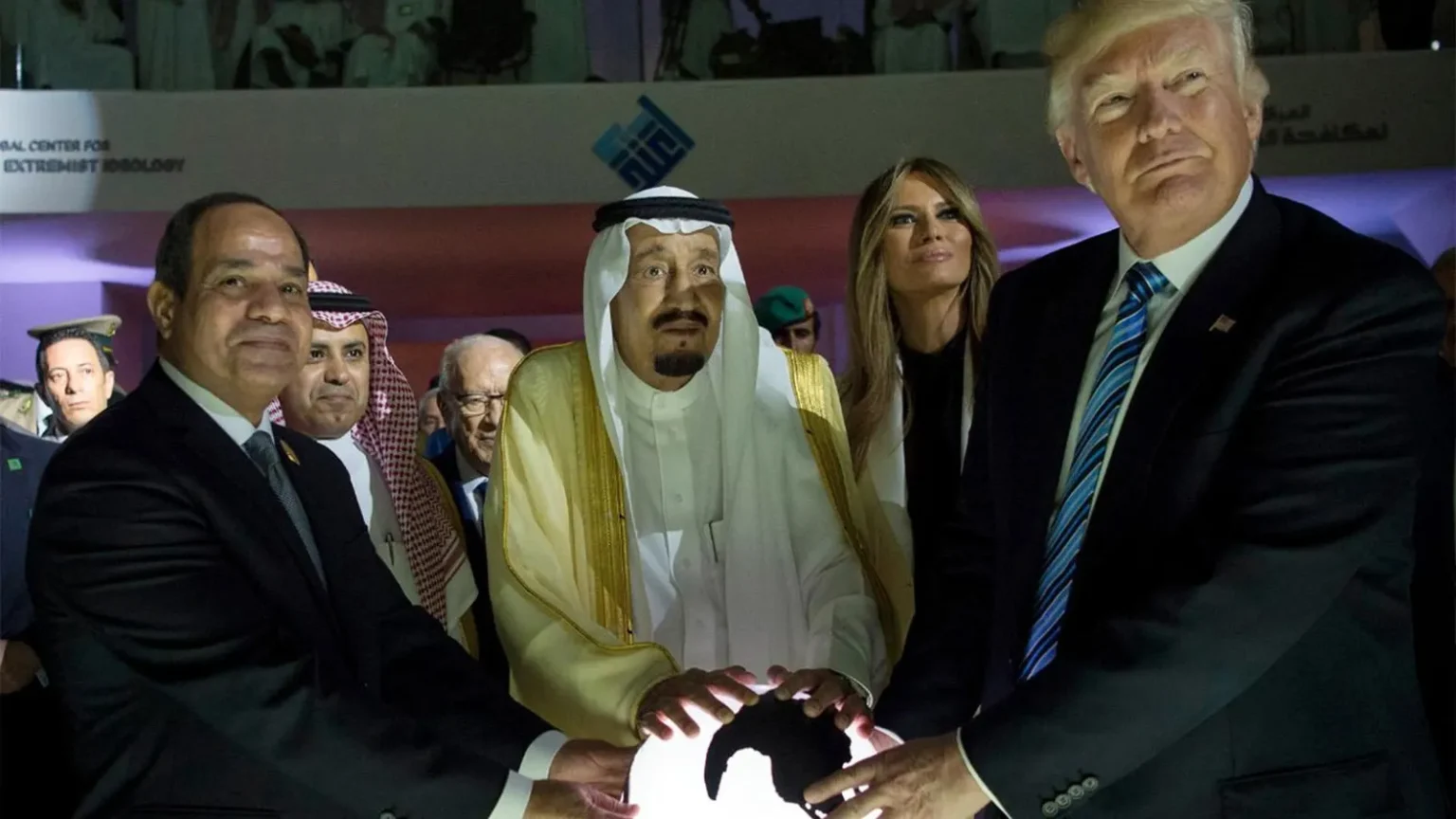The Trump-Saudi Connection: From Modest Beginnings to Billions in Deals
Donald Trump’s relationship with Saudi Arabia has evolved dramatically over the decades, transforming from occasional business interactions to what appears to be a robust financial partnership worth billions. While Trump tweeted in October 2018 that he had “no financial interests in Saudi Arabia,” the timeline of his dealings with the Kingdom tells a more complex story—especially after his presidency.
Trump’s early connections with Saudi Arabia were relatively modest. In 1987, he purchased a yacht for $29 million that was originally commissioned by Adnan Khashoggi, a Saudi arms dealer who happened to be the cousin of journalist Jamal Khashoggi. By 1991, financial troubles forced Trump to part with this yacht, which ended up in the hands of Saudi Prince Alwaleed bin Talal. Four years later, the same prince acquired Trump’s Plaza Hotel in a deal Trump called a “home run,” despite selling it for $80 million less than he paid. In 2001, the Kingdom of Saudi Arabia purchased the entire 45th floor of Trump World Tower near the United Nations for $12 million—a transaction Trump later referenced during his 2015 campaign when he said of Saudis, “They buy apartments from me. Am I supposed to dislike them? I like them very much.”
The relationship deepened significantly during Trump’s presidency and expanded dramatically afterward. As president, Trump chose Saudi Arabia for his first overseas trip in May 2017, breaking with the tradition of visiting neighboring Canada or Mexico first. During this period, the Saudi government spent at least $270,000 at the Trump International Hotel in Washington, D.C. More telling, perhaps, were the business entities Trump created in August 2015—including “THC Jeddah Hotel Manager LLC” and “DT Jeddah Technical Services Manager LLC”—suggesting potential business plans in Saudi Arabia even as he campaigned for president. When questioned about these entities, the White House Press Secretary Karoline Leavitt responded that “Neither the president nor his family have ever engaged, or will ever engage, in conflicts of interest.”
After leaving office, the floodgates of Saudi money opened wide. By 2024, Jared Kushner, Trump’s son-in-law, had secured $2 billion in capital commitments from Saudi Arabia’s Public Investment Fund for his private equity firm, Affinity Partners. These funds reportedly came with a 1.25% management fee, potentially generating $125 million over five years for Kushner’s firm. Trump’s golf properties also benefited from Saudi connections when the Saudi-backed LIV Golf visited Trump National Golf Club in Bedminster, New Jersey, in July 2022, bringing approximately $800,000 to the club. This lucrative relationship between Trump’s properties and the Saudi-backed golf league continued into 2025, with events at Trump National Doral in Miami.
The Trump Organization’s licensing business has also flourished through Saudi connections. In November 2022, the company announced a deal with Saudi developer Dar Al Arkan for a project in Oman that reportedly brought Trump more than $6 million. By July 2024, Dar Al Arkan had expanded the relationship to include Trump Tower Jeddah, with licensing fees of $15.9 million reported by DT Marks KSA LLC, which appears to handle Trump’s Saudi deals. Following Trump’s 2024 election victory, Dar Global announced two more Trump projects in Riyadh, calling them developments that “will redefine luxury living in Saudi Arabia’s capital.” By September 2025, a second Trump property in Jeddah was announced. In total, Forbes calculations suggest that in 2024 alone, Trump and his extended family collected an estimated $50 million from deals connected to Saudi Arabia.
The financial ties extend to the next generation as well. In October 2025, Donald Trump Jr. made his first trip to Saudi Arabia for an investment summit alongside Wall Street heavyweights. Working with private-equity investor Omeed Malik’s 1789 Capital, which had tasked him with raising capital, Don Jr. expressed enthusiasm about the region’s investment potential, stating, “I think the opportunity over here in the region is spectacular.” Meanwhile, Kushner’s Affinity Partners teamed up with Saudi Arabia’s sovereign wealth fund to purchase Electronic Arts for $55 billion, even as he worked with Arab leaders on peace negotiations in Gaza. When questioned about potential conflicts of interest, Kushner reframed them as “experience and trusted relationships that we have throughout the world.” These extensive financial connections may help explain why Crown Prince Mohammed bin Salman—whom U.S. intelligence believes approved the plan to capture or kill journalist Jamal Khashoggi—was expected to receive a warm welcome upon his return to the White House in Trump’s second term, despite the prince’s controversial past.


